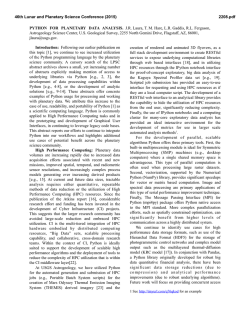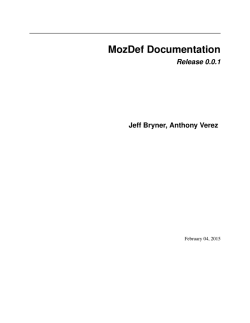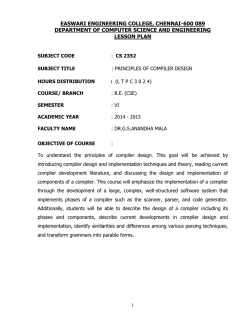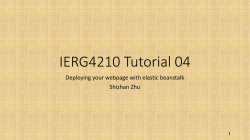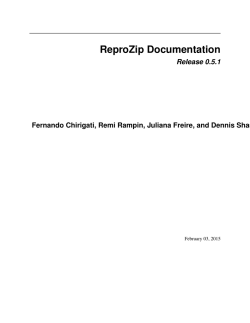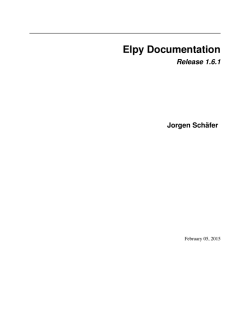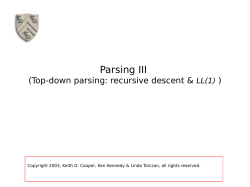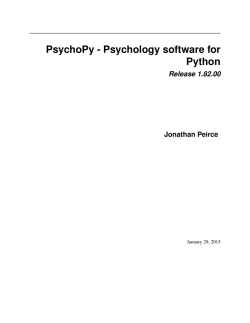
textract Documentation
textract Documentation
Release 1.2.0
Dean Malmgren
January 31, 2015
Contents
1
Currently supporting
2
Related projects
2.1 Command line interface
2.2 Python package . . . . .
2.3 Installation . . . . . . .
2.4 Contributing . . . . . .
2.5 Change Log . . . . . .
3
Indices and tables
3
.
.
.
.
.
.
.
.
.
.
.
.
.
.
.
.
.
.
.
.
.
.
.
.
.
.
.
.
.
.
.
.
.
.
.
.
.
.
.
.
.
.
.
.
.
.
.
.
.
.
.
.
.
.
.
.
.
.
.
.
.
.
.
.
.
.
.
.
.
.
.
.
.
.
.
.
.
.
.
.
.
.
.
.
.
.
.
.
.
.
.
.
.
.
.
.
.
.
.
.
.
.
.
.
.
.
.
.
.
.
.
.
.
.
.
.
.
.
.
.
.
.
.
.
.
.
.
.
.
.
.
.
.
.
.
.
.
.
.
.
.
.
.
.
.
.
.
.
.
.
.
.
.
.
.
.
.
.
.
.
.
.
.
.
.
.
.
.
.
.
.
.
.
.
.
.
.
.
.
.
.
.
.
.
.
.
.
.
.
.
.
.
.
.
.
.
.
.
.
.
.
.
.
.
.
5
5
6
8
9
11
15
i
ii
textract Documentation, Release 1.2.0
As undesireable as it might be, more often than not there is extremely useful information embedded in Word documents, PowerPoint presentations, PDFs, etc—so-called “dark data”—that would be valuable for further textual analysis and visualization. While several packages exist for extracting content from each of these formats on their own,
this package provides a single interface for extracting content from any type of file, without any irrelevant markup.
This package provides two primary facilities for doing this, the command line interface
textract path/to/file.extension
or the python package
# some python file
import textract
text = textract.process("path/to/file.extension")
Contents
1
textract Documentation, Release 1.2.0
2
Contents
CHAPTER 1
Currently supporting
textract supports a growing list of file types for text extraction. If you don’t see your favorite file type here, Please
recommend other file types by either mentioning them on the issue tracker or by contributing a pull request.
• .csv via python builtins
• .doc via antiword
• .docx via python-docx
• .eml via python builtins
• .epub via ebooklib
• .gif via tesseract-ocr
• .jpg and .jpeg via tesseract-ocr
• .json via python builtins
• .html and .htm via beautifulsoup4
• .mp3 via SpeechRecognition and sox
• .odt via python builtins
• .ogg via SpeechRecognition and sox
• .pdf via pdftotext (default) or pdfminer
• .png via tesseract-ocr
• .pptx via python-pptx
• .ps via ps2text
• .tiff via tesseract-ocr
• .txt via python builtins
• .wav via SpeechRecognition
• .xlsx via xlrd
• .xls via xlrd
3
textract Documentation, Release 1.2.0
4
Chapter 1. Currently supporting
CHAPTER 2
Related projects
Of course, textract isn’t the first project with the aim to provide a simple interface for extracting text from any document. But this is, to the best of my knowledge, the only project that is written in python (a language commonly chosen
by the natural language processing community) and is method agnostic about how content is extracted. I’m sure that
there are other similar projects out there, but here is a small sample of similar projects:
• Apache Tika has very similar, if not identical, aims as textract and has impressive coverage of a wide range of
file formats. It is written in java.
• textract (node.js) has similar aims as this textract package (including an identical name! great minds...). It is
written in node.js.
• pandoc is intended to be a document conversion tool (a much more difficult task!), but it does have the ability to
convert to plain text. It is written in Haskell.
Contents:
2.1 Command line interface
2.1.1 textract
Command line tool for extracting text from any document.
usage: textract [-h]
[-e {aliases,ascii,base64_codec,big5,big5hkscs,bz2_codec,charmap,cp037,cp10
[-m METHOD] [-o OUTPUT] [-O OPTION] [-v]
filename
Positional arguments:
filename
Filename to extract text.
Options:
-e=utf_8, --encoding=utf_8 Specify the encoding of the output.
Possible choices: aliases, ascii, base64_codec, big5, big5hkscs,
bz2_codec, charmap, cp037, cp1006, cp1026, cp1140, cp1250, cp1251,
cp1252, cp1253, cp1254, cp1255, cp1256, cp1257, cp1258, cp424,
cp437, cp500, cp720, cp737, cp775, cp850, cp852, cp855, cp856,
cp857, cp858, cp860, cp861, cp862, cp863, cp864, cp865, cp866,
cp869, cp874, cp875, cp932, cp949, cp950, euc_jis_2004, euc_jisx0213,
euc_jp, euc_kr, gb18030, gb2312, gbk, hex_codec, hp_roman8, hz,
5
textract Documentation, Release 1.2.0
idna, iso2022_jp, iso2022_jp_1, iso2022_jp_2, iso2022_jp_2004,
iso2022_jp_3, iso2022_jp_ext, iso2022_kr, iso8859_1, iso8859_10,
iso8859_11, iso8859_13, iso8859_14, iso8859_15, iso8859_16,
iso8859_2, iso8859_3, iso8859_4, iso8859_5, iso8859_6, iso8859_7,
iso8859_8, iso8859_9, johab, koi8_r, koi8_u, latin_1, mac_arabic,
mac_centeuro, mac_croatian, mac_cyrillic, mac_farsi, mac_greek,
mac_iceland, mac_latin2, mac_roman, mac_romanian, mac_turkish,
mbcs, palmos, ptcp154, punycode, quopri_codec, raw_unicode_escape,
rot_13, shift_jis, shift_jis_2004, shift_jisx0213, string_escape, tactis,
tis_620, undefined, unicode_escape, unicode_internal, utf_16, utf_16_be,
utf_16_le, utf_32, utf_32_be, utf_32_le, utf_7, utf_8, utf_8_sig, uu_codec,
zlib_codec
-m=, --method=
Specify a method of extraction for formats that support it
-o=-, --output=-
Output raw text in this file
-O, --option
Add arbitrary options to various parsers of the form KEYWORD=VALUE. A full list of available KEYWORD options is available
at http://bit.ly/textract-options
-v, --version
show program’s version number and exit
Note: To make the command line interface as usable as possible, autocompletion of available options with textract
is enabled by @kislyuk’s amazing argcomplete package. Follow instructions to enable global autocomplete and you
should be all set. As an example, this is also configured in the virtual machine provisioning for this project.
2.2 Python package
This package is organized to make it as easy as possible to add new extensions and support the continued growth and
coverage of textract. For almost all applications, you will just have to do something like this:
import textract
text = textract.process(’path/to/file.extension’)
to obtain text from a document. You can also pass keyword arguments to textract.process, for example, to use
a particular method for parsing a pdf like this:
import textract
text = textract.process(’path/to/a.pdf’, method=’pdfminer’)
or to specify a particular output encoding (input encodings are inferred using chardet):
import textract
text = textract.process(’path/to/file.extension’, encoding=’ascii’)
2.2.1 Additional options
Some parsers also enable additional options which can be passed in as keyword arguments to the
textract.process function. Here is a quick table of available options that are available to the different types
of parsers:
6
Chapter 2. Related projects
textract Documentation, Release 1.2.0
parser
gif
jpg
png
pdf
tiff
option
language
language
language
language
language
description
Specify the language for OCR-ing text with tesseract
Specify the language for OCR-ing text with tesseract
Specify the language for OCR-ing text with tesseract
For use when method=’tesseract’, specify the language
Specify the language for OCR-ing text with tesseract
As an example of using these additional options, you can extract text from a Norwegian PDF using Tesseract OCR
like this:
text = textract.process(
’path/to/norwegian.pdf’,
method=’tesseract’,
language=’nor’,
)
2.2.2 A look under the hood
When textract.process(’path/to/file.extension’) is called, textract.process looks for a
module called textract.parsers.extension_parser that also contains a Parser.
textract.parsers.process(filename, encoding=’utf_8’, **kwargs)
This is the core function used for extracting text. It routes the filename to the appropriate parser and returns
the extracted text as a byte-string encoded with encoding.
Importantly,
the textract.parsers.extension_parser.Parser
textract.parsers.utils.BaseParser.
class
must
inherit
from
class textract.parsers.utils.BaseParser
Bases: object
The BaseParser abstracts out some common functionality that is used across all document Parsers. In particular, it has the responsibility of handling all unicode and byte-encoding.
decode(text)
Decode text using the chardet package.
encode(text, encoding)
Encode the text in encoding byte-encoding. This ignores code points that can’t be encoded in bytestrings.
extract(filename, **kwargs)
This method must be overwritten by child classes to extract raw text from a filename. This method can
return either a byte-encoded string or unicode.
process(filename, encoding, **kwargs)
Process filename and encode byte-string with encoding.
This method is called by
textract.parsers.process() and wraps the BaseParser.extract() method in a delicious
unicode sandwich.
Many of the parsers rely on command line utilities to do some of the parsing. For convenience, the
textract.parsers.utils.ShellParser class includes some convenience methods for streamlining access
to the command line.
class textract.parsers.utils.ShellParser
Bases: textract.parsers.utils.BaseParser
The ShellParser extends the BaseParser to make it easy to run external programs from the command
line with Fabric-like behavior.
2.2. Python package
7
textract Documentation, Release 1.2.0
run(command)
Run command and return the subsequent stdout and stderr as a tuple. If the command is not successful, this raises a textract.exceptions.ShellError.
temp_filename()
Return a unique tempfile name.
2.2.3 A few specific examples
There are quite a few parsers included with textract. Rather than elaborating all of them, here are a few that
demonstrate how parsers work.
class textract.parsers.epub_parser.Parser
Bases: textract.parsers.utils.BaseParser
Extract text from epub using python epub library
extract(filename, **kwargs)
class textract.parsers.doc_parser.Parser
Bases: textract.parsers.utils.ShellParser
Extract text from doc files using antiword.
extract(filename, **kwargs)
2.3 Installation
One of the main goals of textract is to make it as easy as possible to start using textract (meaning that installation
should be as quick and painless as possible). This package is built on top of several python packages and other source
libraries. Assuming you are using pip or easy_install to install textract, the python packages are all installed by
default with textract. The source libraries are a separate matter though and largely depend on your operating system.
2.3.1 Ubuntu / Debian
There are two steps required to run this package on Ubuntu/Debian. First you must install some system packages using
the apt-get package manager before installing textract from pypi.
apt-get install python-dev libxml2-dev libxslt1-dev antiword poppler-utils pstotext tesseract-ocr \
flac ffmpeg lame libmad0 libsox-fmt-mp3 sox
pip install textract
Note: It may also be necessary to install zlib1g-dev on Docker instances of Ubuntu. See issue #19 for details
2.3.2 OSX
These steps rely on you having homebrew installed as well as the cask plugin (brew install
caskroom/cask/brew-cask). The basic idea is to first install XQuartz before installing a bunch of system
packages before installing textract from pypi.
brew cask install xquartz
brew install poppler antiword tesseract
pip install textract
8
Chapter 2. Related projects
textract Documentation, Release 1.2.0
Note: pstotext is not currently a part of homebrew so .ps extraction must be enabled by manually installing from
source.
Note: Depending on how you have python configured on your system with homebrew, you may also need to install
the python development header files for textract to properly install.
2.3.3 Don’t see your operating system installation instructions here?
My apologies! Installing system packages is a bit of a drag and its hard to anticipate all of the different environments
that need to be accomodated (wouldn’t it be awesome if there were a system-agnostic package manager or, better yet,
if python could install these system dependencies for you?!?!). If you’re operating system doesn’t have documenation
about how to install the textract dependencies, please contribute a pull request with:
1. A new section in here with the appropriate details about how to install things. In particular, please give instructions for how to install the following libraries before running pip install textract:
• libxml2 2.6.21 or later is required by the .docx parser which uses lxml via python-docx.
• libxslt 1.1.15 or later is required by the .docx parser which users lxml via python-docx.
• python header files are required for building lxml.
• antiword is required by the .doc parser.
• pdftotext is optionally required by the .pdf parser (there is a pure python fallback that works if pdftotext
isn’t installed).
• pstotext is required by the .ps parser.
• tesseract-ocr is required by the .jpg, .png and .gif parser.
• sox is required by the .mp3 and .ogg parser. You need to install ffmpeg, lame, libmad0 and libsox-fmtmp3, before building sox, for these filetypes to work.
2. Add a requirements file to the requirements directory of the project with the lower-cased name of your operating
system (e.g. requirements/windows) so we can try to keep these things up to date in the future.
2.4 Contributing
The overarching goal of this project is to make it as easy as possible to extract raw text from any document for the
purposes of most natural language processing tasks. In practice, this means that this project should preferentially
provide tools that correctly produce output that has words in the correct order but that whitespace between words,
formatting, etc is totally irrelevant. As the various parsers mature, I fully expect the output to become more readable
to support additional use cases, like extracting text to appear in web pages.
Importantly, this project is committed to being as agnostic about how the content is extracted as it is about the means
in which the text is analyzed downstream. This means that textract should support multiple modes of extracting
text from any document and provide reasonably good defaults (defaulting to tools that tend to produce the correct word
sequence).
Another important aspect of this project is that we want to have extremely good documentation. If you notice a type-o,
error, confusing statement etc, please fix it!
2.4. Contributing
9
textract Documentation, Release 1.2.0
2.4.1 Quick start
1. Fork and clone the project:
git clone https://github.com/YOUR-USERNAME/textract.git
2. Contribute! There are several open issues that provide good places to dig in. Check out the contribution guidelines and send pull requests; your help is greatly appreciated!
Depending on your development preferences, there are lots of ways to get started developing with textract:
Developing in a native Ubuntu environment
3. Install all the necessary system packages:
./provision/travis-mock.sh
./provision/debian.sh
# optionally run some of the steps in these scripts, but you
# may want to be selective about what you do as they alter global
# environment states
./provision/python.sh
./provision/development.sh
4. On the virtual machine, make sure everything is working by running the suite of functional tests:
nosetests
These functional tests are designed to be run on an Ubuntu 12.04 LTS server, just like the virtual machine and
the server that runs the travis-ci test suite. There are some other tests that have been added along the way in the
Travis configuration. For your convenience, you can run all of these tests with:
./tests/run.py
Current build status:
Developing with Vagrant virtual machine
3. Install Vagrant and Virtualbox and launch the development virtual machine:
vagrant plugin install iniparse
vagrant up && vagrant provision
On vagrant sshing to the virtual machine, note that the PYTHONPATH and PATH environment variables
have been altered in this virtual machine so that any changes you make to textract in development are automatically incorporated into the command.
4. See step 4 in the Ubuntu development environment. Current build status:
Developing with Docker container
3. Go to the Docker documentation and follow the instructions under “If you’d like to try the latest version of
Docker” to install Docker.
4. Just run tests/run_docker_tests.sh to run the full test suite. Current build status:
10
Chapter 2. Related projects
textract Documentation, Release 1.2.0
2.5 Change Log
This project uses semantic versioning to track version numbers, where backwards incompatible changes (highlighted
in bold) bump the major version of the package.
2.5.1 latest changes in development for next release
2.5.2 1.2.0
• support for .tiff files (‘#81‘_)
• added support for other languages for tesseract (#76 by @anderser)
• added --option/-O flag to pass arbitrary arguments for things like languages into textract
• several bug fixes, including:
– fix bug with doing OCR on multi-page pdfs and removing temporary directory (#82 by @pudo)
– correctly accounting for whitespace in .odt documents (#79 by @evfredericksen)
– standardizing testing environment to be compatible with different versions of third-party command line
tools (#78)
2.5.3 1.1.0
• support for .wav, .mp3, and .ogg files (#56 and #62 by @arvindch)
• support for .csv files (#64)
• support for scanned .pdf files with tesseract (#66 by @pudo)
• support for .htm files (‘#69‘_)
• several bug fixes, including:
– .odt parser now correctly extracts text in order (#61 by @levivm)
– fixed Docker development environment compatability with the Vagrant VM environment (#73 by
@ShawnMilo)
• several internal improvements, including:
– improvements in the python documentation (#70)
– improved html output with reduced whitespace around inline elements in output text (#58 by @eiotec)
2.5.4 1.0.0
• standardized encoding of output with ‘‘-e/–encoding‘‘ option (#39)
• support for .xls and .xlsx files (#42 and #55 by @levivm)
• support for .epub files (#40 by @kokxx)
• several bug fixes, including:
– removing tesseract version info from output of image parsers (#48)
– problems with spaces in filenames (#53)
2.5. Change Log
11
textract Documentation, Release 1.2.0
– concurrancy problems with tesseract (#44 by @ShawnMilo, #41 by @christomitov)
• several internal improvements, including:
– switching to using class-based parsers to abstract away the common functionality between different parser
classes (#39)
– switching to using a python-based test suite and added standardized text tests to make sure output is
consistent across file types (#49)
– including support for Docker-based testing (#46 by @ShawnMilo)
2.5.5 0.5.1
• several bug fixes, including:
– documentation fixes
– shell commands hanging on large files (#33)
2.5.6 0.5.0
• support for .json files (#13 by @anthonygarvan)
• support for .odt files (#29 by @christomitov)
• support for .ps files (#25)
• support for .gif, .jpg, .jpeg, and .png files (#30 by @christomitov)
• several bug fixes, including:
– improved fallback handling in .pdf parser if the pdftotext command line utility isn’t installed (#26)
– improved documentation for installation instructions on non-Ubuntu operating systems (#21, #26)
• several internal improvements, including:
– cleaned up implementation of extension parsers to avoid magic
2.5.7 0.4.0
• support for .html files (#7)
• support for .eml files (#4)
• automated the documentation for the python package using sphinx-apidoc in docs/Makefile (#9)
2.5.8 0.3.0
• support for .txt files, haha (#8)
• fixed installation bug with not properly including requirements files in the manifest
12
Chapter 2. Related projects
textract Documentation, Release 1.2.0
2.5.9 0.2.0
• support for .doc files (#2)
• support for .pdf files (#3)
• several bug fixes, including:
– fixing tab complete bug no file paths (#6)
– fixing tests to make sure the work properly on travis-ci
2.5.10 0.1.0
• Initial release, support for .docx and .pptx
2.5. Change Log
13
textract Documentation, Release 1.2.0
14
Chapter 2. Related projects
CHAPTER 3
Indices and tables
• genindex
• modindex
• search
15
textract Documentation, Release 1.2.0
16
Chapter 3. Indices and tables
Index
B
BaseParser (class in textract.parsers.utils), 7
D
decode() (textract.parsers.utils.BaseParser method), 7
E
encode() (textract.parsers.utils.BaseParser method), 7
extract() (textract.parsers.doc_parser.Parser method), 8
extract() (textract.parsers.epub_parser.Parser method), 8
extract() (textract.parsers.utils.BaseParser method), 7
P
Parser (class in textract.parsers.doc_parser), 8
Parser (class in textract.parsers.epub_parser), 8
process() (in module textract.parsers), 7
process() (textract.parsers.utils.BaseParser method), 7
R
run() (textract.parsers.utils.ShellParser method), 7
S
ShellParser (class in textract.parsers.utils), 7
T
temp_filename()
method), 8
(textract.parsers.utils.ShellParser
17
© Copyright 2026

